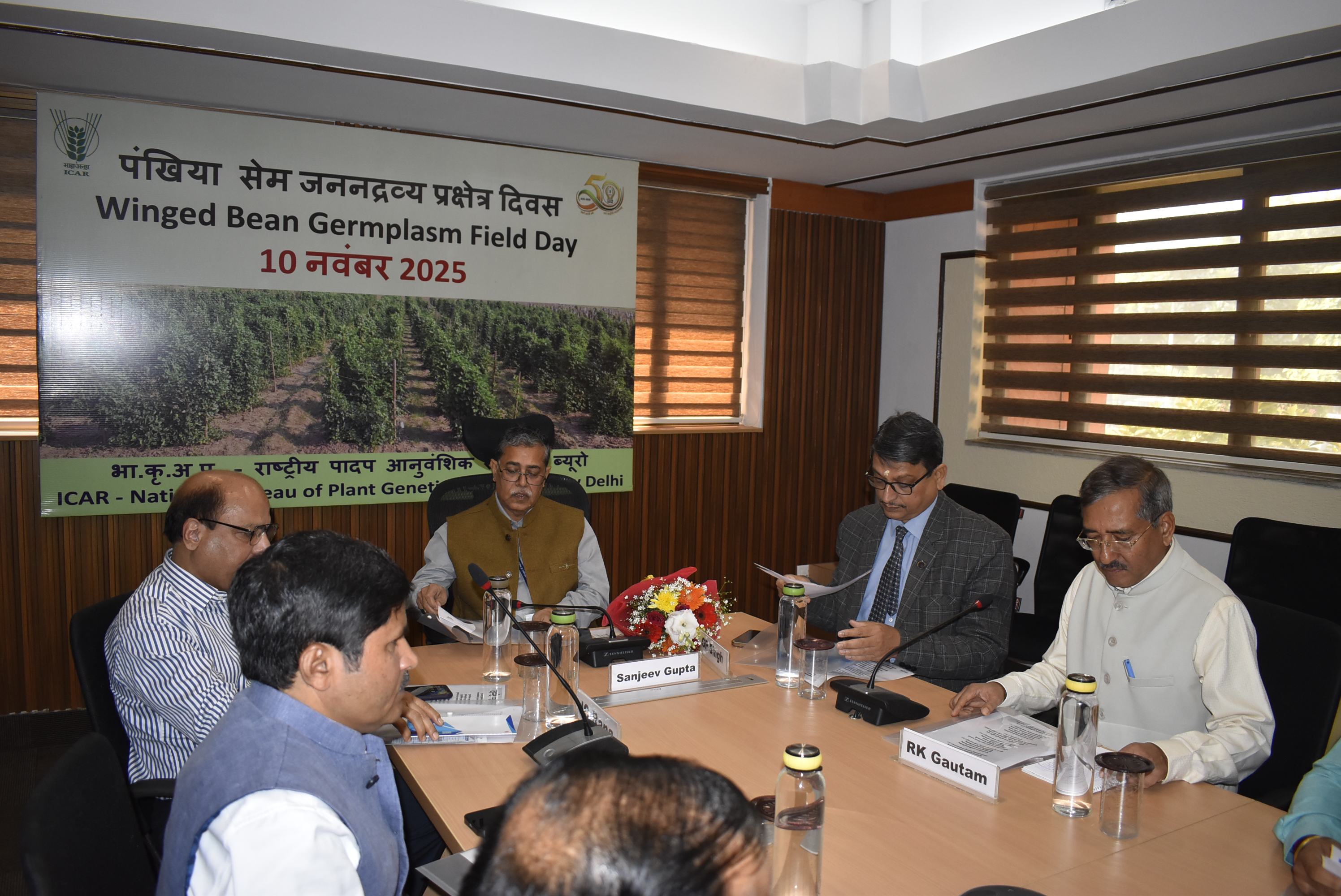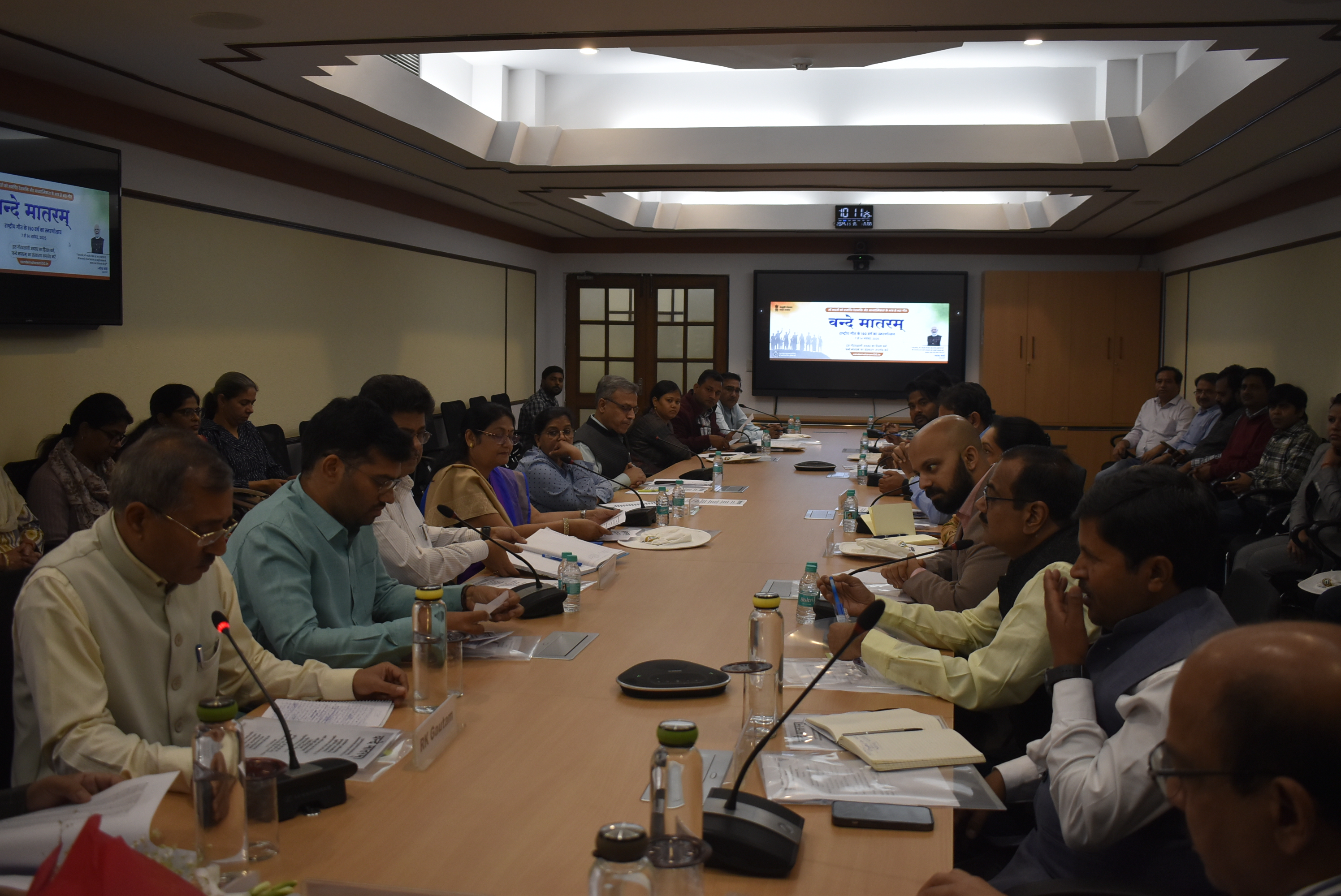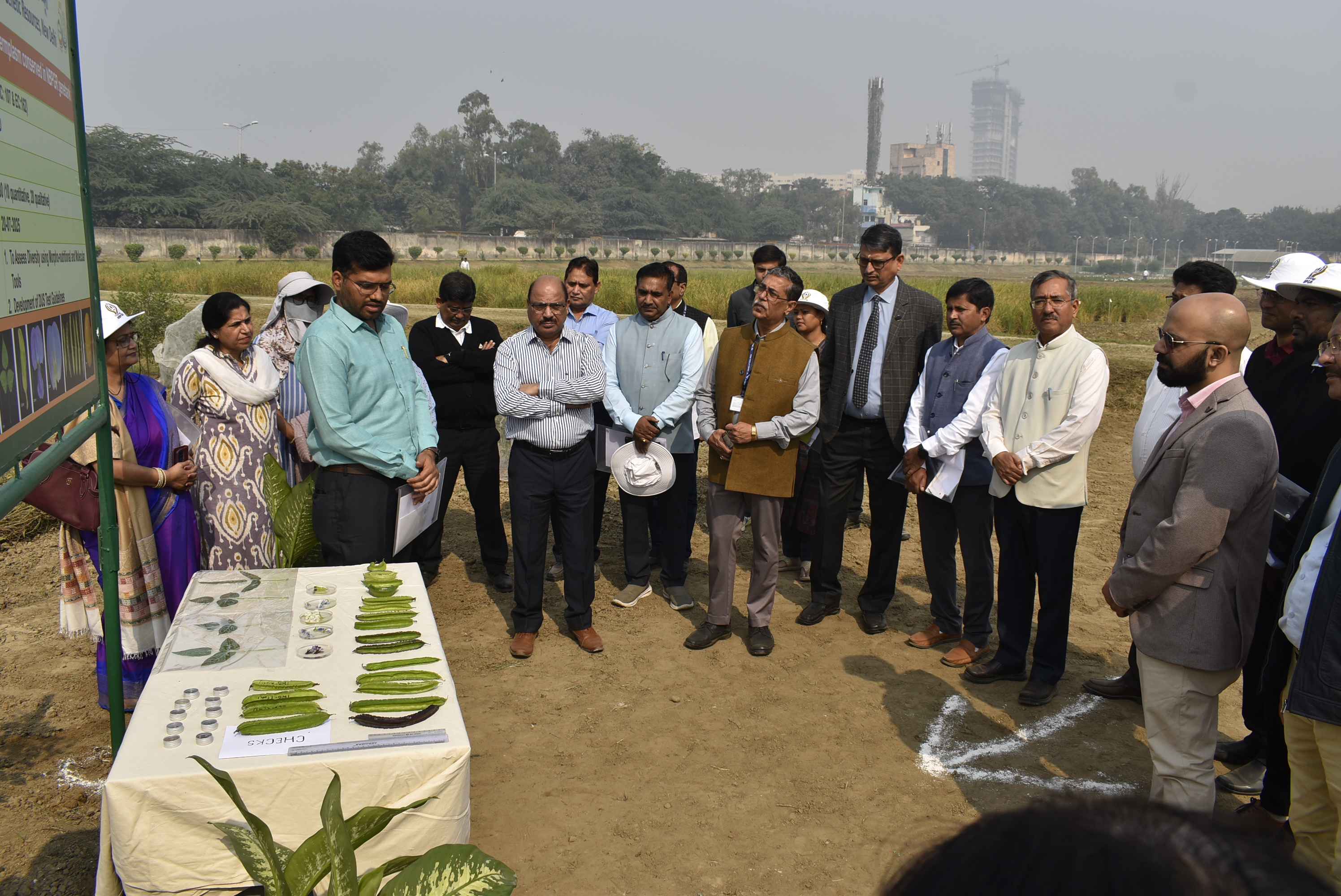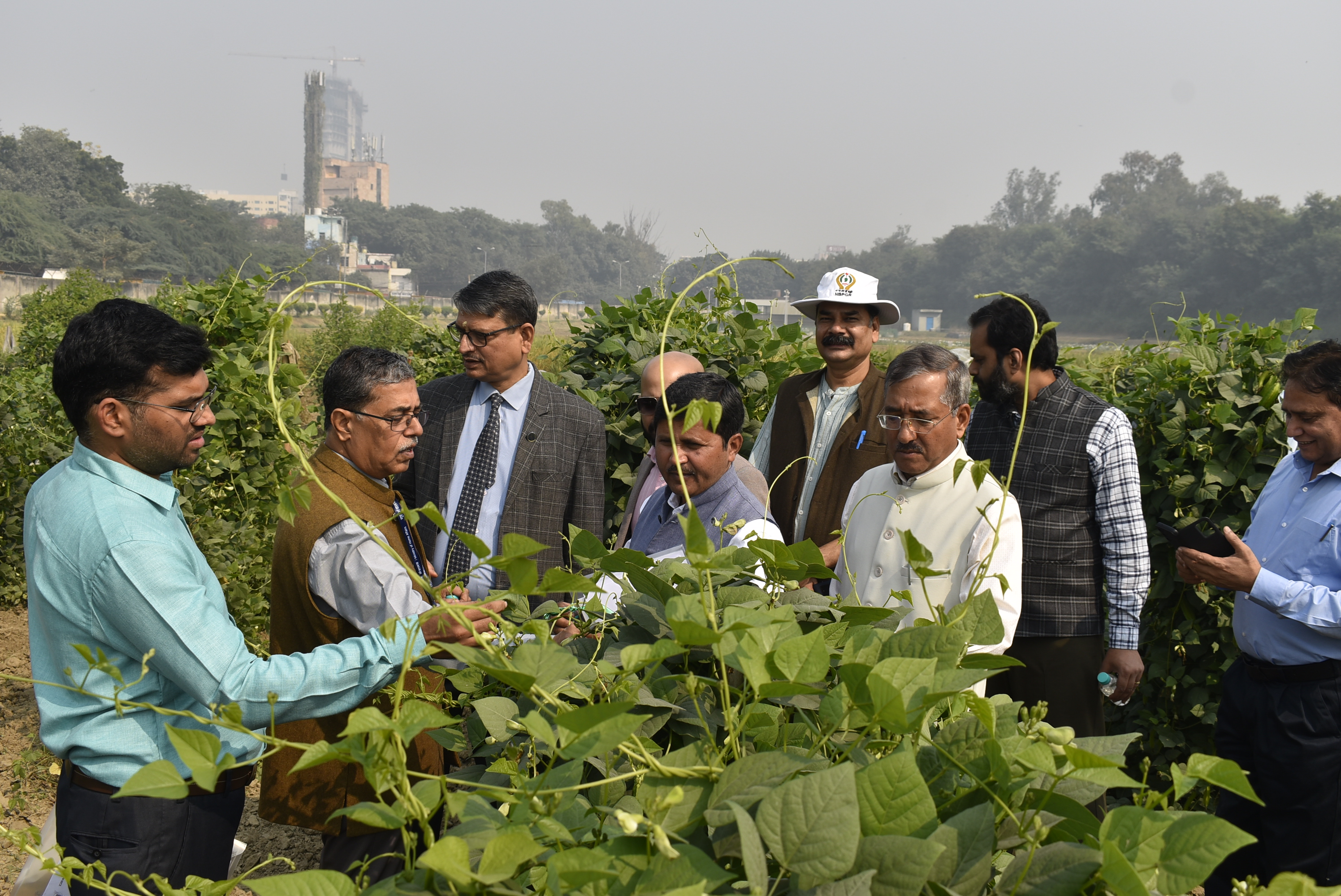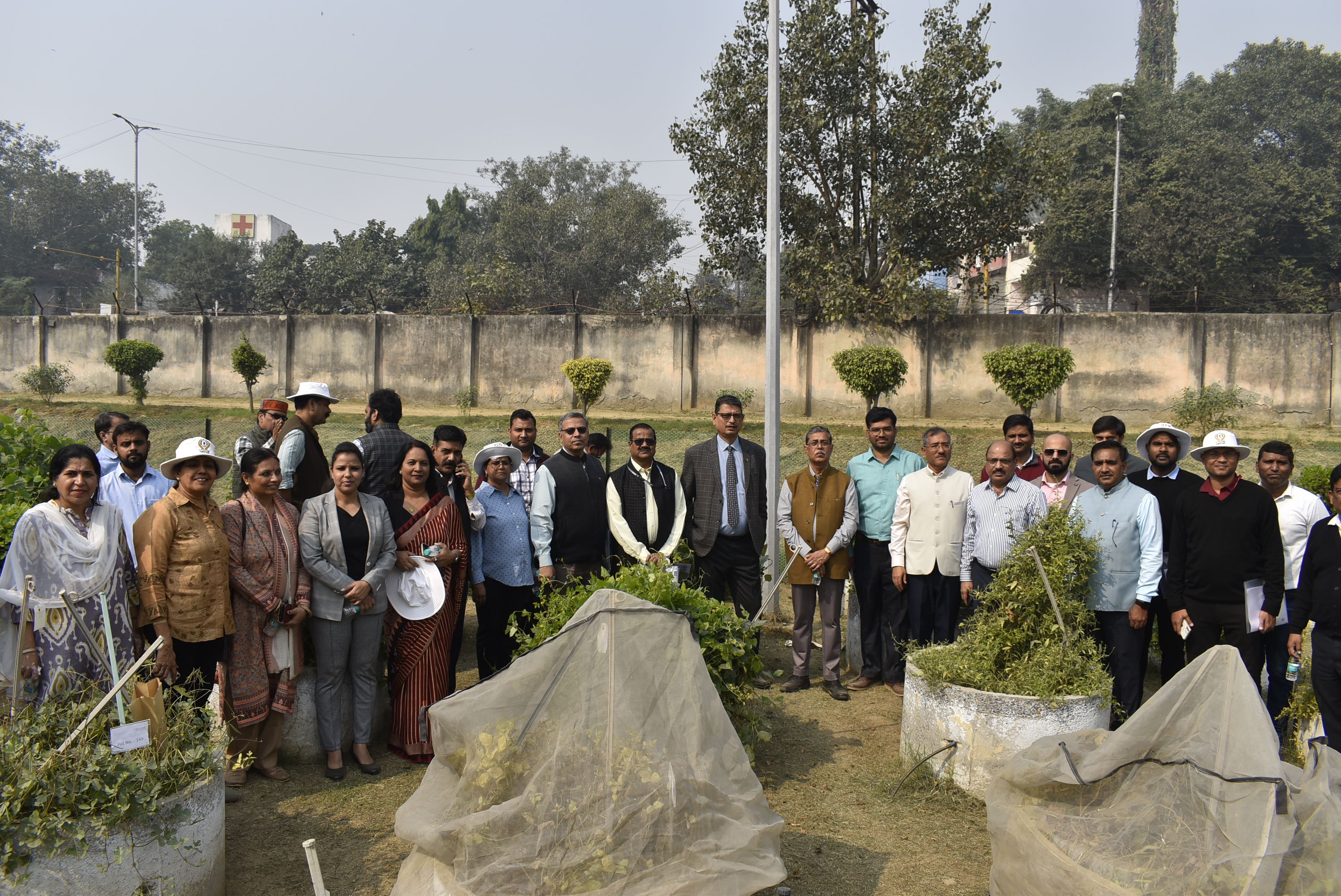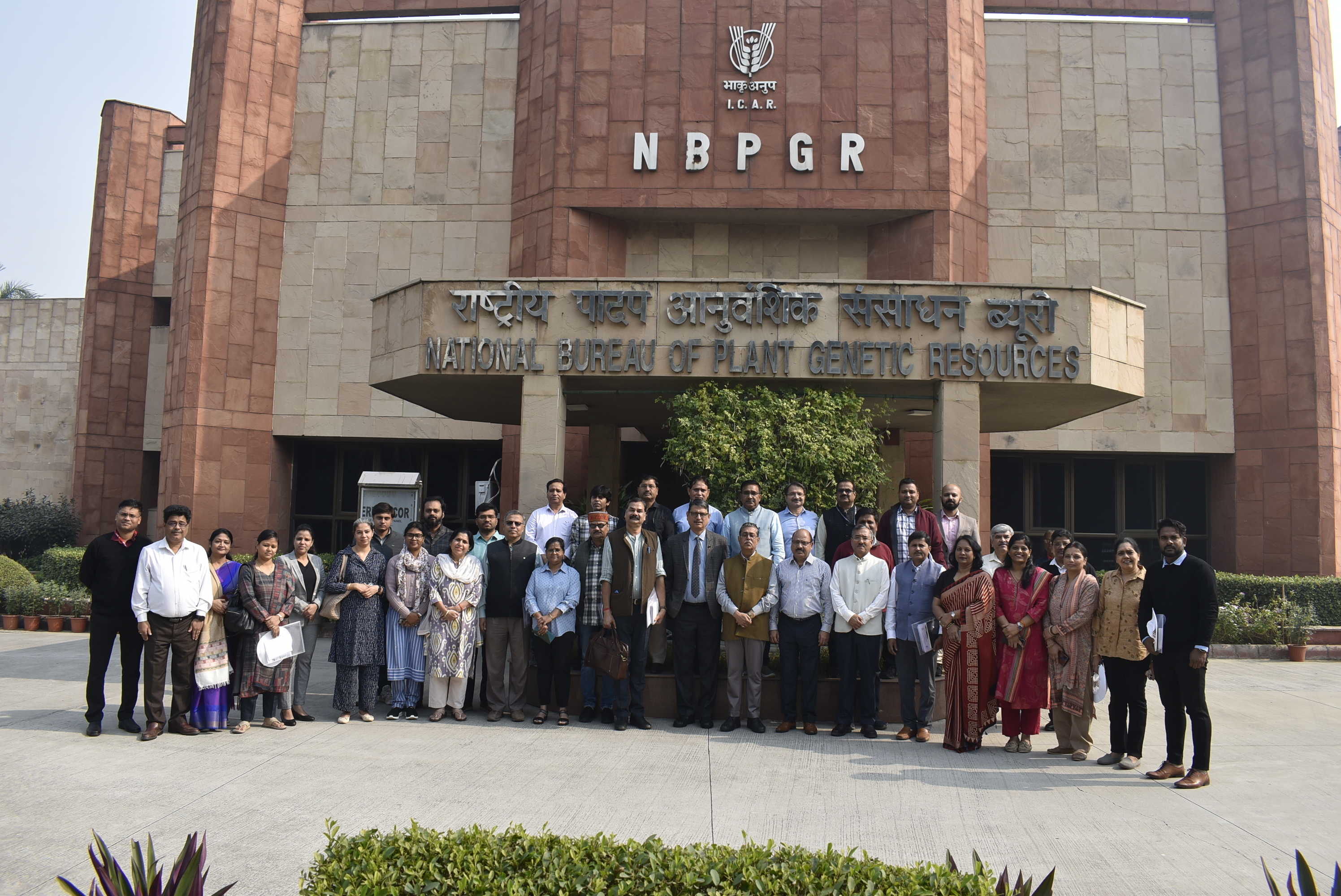The Winged Bean Germplasm Field Day was successfully organized on 10 November 2025 at Pusa Farm, ICAR–National Bureau of Plant Genetic Resources (NBPGR), New Delhi, by the Division of Germplasm Evaluation (DGE). The event aimed to showcase the diversity, performance, and potential of winged bean germplasm characterized during the current kharif season. The programme was graced by Dr. Sanjeev Gupta, ADG (Seeds), ICAR, as Chief Guest, along with Dr. G. P. Singh, Director, ICAR–NBPGR, and Dr. J. C. Rana, Country Representative, Alliance of BI-CIAT, India Office. Scientists, technical staff, and students from various divisions of the institute also participated enthusiastically. The event was organized under the leadership of Dr. R. K. Gautam, Head, DGE, and his team. A total of 268 accessions of winged bean (Psophocarpus tetragonolobus (L.) DC.) were characterized and displayed, representing the extensive morphological and genetic variability conserved at ICAR–NBPGR. The winged bean, also known as four-angled bean or Goa bean, is an underutilized tropical legume valued for its exceptional nutritional richness and versatile use. Often referred to as a “single-species supermarket,” all parts of the plant—pods, seeds, flowers, leaves, and tubers—are edible and highly nutritious. In his address, Dr. Sanjeev Gupta appreciated the efforts of ICAR–NBPGR for developing DUS guidelines and undertaking focused research on multiple dimensions of this potential legume. Dr. G. P. Singh, Director, emphasized the importance of promoting climate-resilient and nutrient-rich crops like winged bean to diversify Indian food systems. He commended the DGE team for bringing this potential crop into focus and stressed the need to strengthen its research, evaluation, and collaborative utilization across programs. Delivering the welcome address, Dr. R. K. Gautam highlighted ongoing initiatives at NBPGR, including a recently sanctioned DUS project on winged bean and a collaborative project with the Crop Trust aimed at mainstreaming this crop into national improvement programmes. Around 50 participants from various institutions attended the event. The field visit provided an opportunity to observe variability among accessions for key traits such as yield, growth habit, and pod characteristics, and to exchange ideas on future research directions. Dr. Sunil Archak apprised the participants about the procedures and mechanisms involved in germplasm exchange within the national system. Dr. S. K. Yadav, Nodal Officer, AICRN–PC, coordinated the feedback and discussion session, facilitating valuable interactions among participants. The event concluded with a vote of thanks by Dr. Kuldeep Tripathi, Officer In-Charge, Pusa Farm, who expressed gratitude to the Director, Head (DGE), organizing committee members, staff, and participants for their cooperation and contribution in making the event a success. The Winged Bean Germplasm Field Day reaffirmed ICAR–NBPGR’s commitment to the conservation, characterization, and utilization of underutilized legumes for enhancing food, nutrition, and climate resilience in Indian agriculture.
